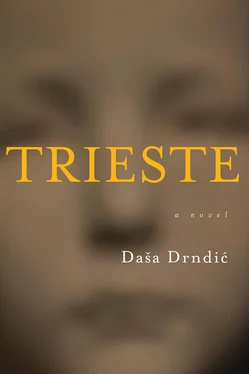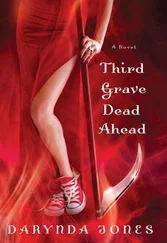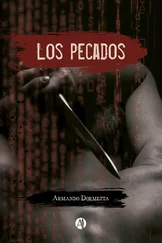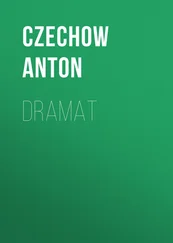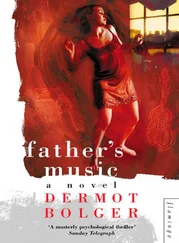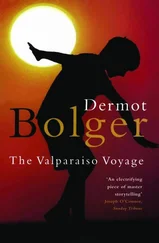The truth is absolutely simple. Our fathers were criminals and murderers, so screw those platitudes about the banality of evil. There are no justifications, there is no valid relativization, there is no excuse. There is no mercy for the pathological debris of humanity, those tainted minds shouldn’t have even been brought to trial, what miserable justice, what defence of which dignity, whose dignity, which pathetic Nurembergs, Stuttgarts, Dusseldorfs, Frankfurts, Munichs, Hagues, money wasted, time wasted, only dark, farcical performances after which not a single diseased mind has learned nor will learn a thing, all of them should have been executed after a summary trial the way the Russians and East Germans did in ’46, ’47 and ’48, their germ should have been sent to seed so the new ones don’t come along who keep coming and coming, they, too, should be swiftly done away with before they die in comfortable prisons playing chess or, worst of all, free, as heroes to whom monstrous monuments are raised, whose names bedeck city squares and airports, that scum ought to be eliminated so that the story wouldn’t continue, elegantly and brazenly, inserting itself into reality and so that the malevolent Phoenix would once and for all stop hovering over our heads. That eternal and infinite Herumgeschmuse of the children of the murderers and criminals is becoming pathetic. Their “They were little Nazis” holds no water. There are no little Nazis. To begin (or end) with, to the children and grandchildren of the murderers and criminals I propose a verbal Exerzier and exercitationes of self-denazification, a mea culpa in the name of the second generation and the third. The fact that the descendants of the Nazis, Fascists, Ustašas, homeguard fighters, Chetniks, and so on and so forth, prefer not to recognize the crimes of their fathers and mothers, grandfathers and grandmothers, diminishes the overall crimes of the Germans and others, which were committed during the Third Reich. And this holds true, as well, for the descendants of former satellite Nazi-Fascist fabrications, formerly fascist countries. It applies across the board. And it applies to the Israelis today. I’m still waiting now for the Americans to bump off Morales, the silence has poured into a gigantic block of reinforced concrete, and the Catholic Church, this caricatured parade and more than revolting fabrication, this costumed theatre of transparent lies and empty promises should be done away with right now, once and for all, because the gatherings of the zealously blinded masses who bow down to the divine emissary are reminiscent of the ominous gatherings at which people shouted Sieg Heil !
Listen, says Bernhard, definitely Bernhard, I was confirmed in my suspicion that our relations with Jesus Christ were in reality no different from those we had had with Adolf Hitler. When I went back to school after the war, says Bernhard, the school was called the Johanneum and it became a Catholic institution with a new name for the old building, which had been a National Socialist institution. The day-room, where we had formerly been instructed in National Socialism, had been turned into a chapel. In the place which had been occupied by the lectern, at which Grunkranz had stood before the end of the war and held forth about the Greater Germany, there now stood an altar; where Hitler’s portrait had once hung on the wall, there was now a large cross, and in place of the piano at which Grunkranz had accompanied our singing of National Socialist songs like Die Fahne hoch or Es zittern die morschen Knochen, there now stood a harmonium. The room had not even been repainted. So, after the war, the colour of the ruling party was no longer Nazi brown, but once more the Catholic black it had been before the war. The gymnasium had always been and remained a strictly Catholic school, although after the war it was turned into a state gymnasium. After being subjected to the Nazi lie about history, I was now subjected to the Catholic lie. Both National Socialism and Catholicism are infectious diseases, diseases of the mind, but I succumbed to neither, since my grandfather had taken care to immunize me against them. Nevetheless I suffered under them, though not from them. Look at the Salzburg Summer Festival, which makes a hypocritcal pretension to universality, when so-called universal art is pressed into service to disguise this peverted denial of the spirit; and indeed, everything that goes on there in the summer is merely deceit and hypocrisy set to music and performed for all it is worth by various combinations of instruments. And all of it, the whole festival, was founded to temporarily mask the diseased, perverse and polluted being of that city, which does not greatly differ from numerous European Catholic cities that boasted of their National Socialism, or whatever it was then called.
When in 2005 I said to my colleague Ian Buruma, I must go to Sonnenstein, that’s where my biological father, S.S.-Untersturmführer Kurt Franz, began his career as executioner, Ian said, You won’t find anything there, all traces have been removed. Several years ago I was in Pirna, at the time a neglected but unusual little town with beautiful nineteenth-century villas, said Buruma, and with some examples of late Gothic architecture, he said. I wanted to see the building in which the first gassings of mentally ill patients took place, I knew the building existed, I had seen photographs of that building, at the time the “original” extermination house for the “useless”, in which more than 10,000 people were gassed with Zyklon B, but none of the tourist brochures offered any information about it. I had trouble finding the place , Buruma said. An old woman cheerfully sent me uphill, but I got lost, so I asked an elderly gentleman, Where did the Sonnenstein Institute use to be? and he said, Pardon? Where did what use to be? Again I said, the former euthanasia institute, and he asked, When was that? And I said, In Hitler’s day, and he said, Sorry, I wouldn’t know anything about that. Nonetheless, I finally found it, this former “institute ”, Buruma said. I went over to a yellow-walled villa where there was a plaque that read, SAUNA FOR THE ILL AND ELDERLY. A young woman asked me what I was after. When I told her, she gave a start: Oh, no, that wasn’t here. Here we work only with patients who require specialist therapy. You’re looking for a different building, that one over there, where there used to be a factory of turbines, the young woman said , Buruma told me. The building over there was surrounded by a rusty wire fence, and the building itself looked quite forbidding. On it was a plaque commemorating an Albert Barthel, OUR PARTY COMRADE WHO WAS KILLED BY THE NAZIS IN 1942. So, I concluded, Buruma said, that the institute had not been in that building either. All the same I went into one of the rooms and watched some young men having lunch. It turned out that they were deacons who cared for mentally ill children. The former euthanasia institute? Oh, no, no, thank God, they said, that institute was not here, no, it was in the building next to this one, said the deacons, Buruma told me. I peered into the cellar of the neighbouring building, an elegant French-style villa. On it there were no plaques. Wild grass and weeds had grown around the door, latched shut. I heard birds chirping and the rustling of leaves in the mild breeze and thought about the pile of plush teddy bears I had seen in the hall of the deacons’ building. Then I remembered Oskar Matzerath and his jazz music with Klepp at the elegant Zwiebelkeller in Dusseldorf and how the guests chopped onions and wept without restraint, how at last they were crying, how the tears gushed, even if they were artificial tears provoked by stinging onions, yet still they were tears that stung. Don’t go to Sonnenstein, Buruma said. Sonnenstein is nothing but weeds.
Читать дальше
